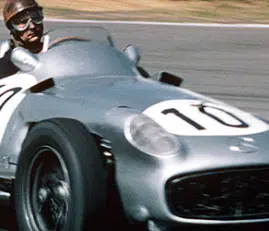The Indianapolis Motor Speedway ranks alongside Le Mans, Monaco and Daytona as one of motor racing’s truly iconic circuits. From 1916 to 1994 it was used for just one race, albeit one that could lay claim to being the greatest motorsport event in the world. But, under the direction of IMS President Tony George, the venue has since held NASCAR’s Brickyard 400, MotoGP and the Formula 1 United States GP. Indy’s nickname, “The Brickyard,” dates back to the speedway’s early days. Its original dirt surface produced so much dust during its inaugural meeting in 1909 that founder Carl Fisher decided to pave his new circuit with 3.2 million bricks for the following season. The track was paved in 1939 but a “yard of bricks” remains at the startline.
AJ Foyt, Al Unser sr, Rick Mears and Hélio Castroneves have all won the race on four occasions. The quintessentially American race has always attracted overseas interest. Frenchman Jules Goux, allegedly aided by a bottle or two of fine champagne, won the 1913 Indy 500 while Jim Clark and Graham Hill both succeeded in the 1960s. More recently, Scotland’s Dario Franchitti is a three-time winner. However, they say there are only two types of Indianapolis drivers – those who have hit the wall, and those who are going to hit the wall. The Indy 500 traditionally attracted the world’s largest one-day sporting crowd but the split between Champ Cars and the IMS-organised Indy Racing League initially weakened North American open-wheel racing and the Indy 500. The two series reunited in 2008 and the race remains a much sort-after addition to any driver’s c.v.
Original plans for the speedway included a road course that was never built. It was 2000 before a road course was finally added to hold the United States GP. On the Grand Prix circuit, drivers remained on full throttle through the banked final corner (Turn 1 on the oval) and along the front stretch for up to 25 seconds – the longest such opportunity on the entire F1 calendar. The course then returned behind Gasoline Alley and wound through the golf course before it re-joined the oval on the South Chute. The 2005 race was blighted by the mass withdrawal of all the Michelin-shod runners amid safety fears. That left just six cars to race and led to furious protests from the bemused spectators. Rather than become F1’s permanent American home, the Grand Prix was last held here in 2007. As well as having the Indy 500 as its centrepiece, the IndyCar Series now includes a race on the road course.





